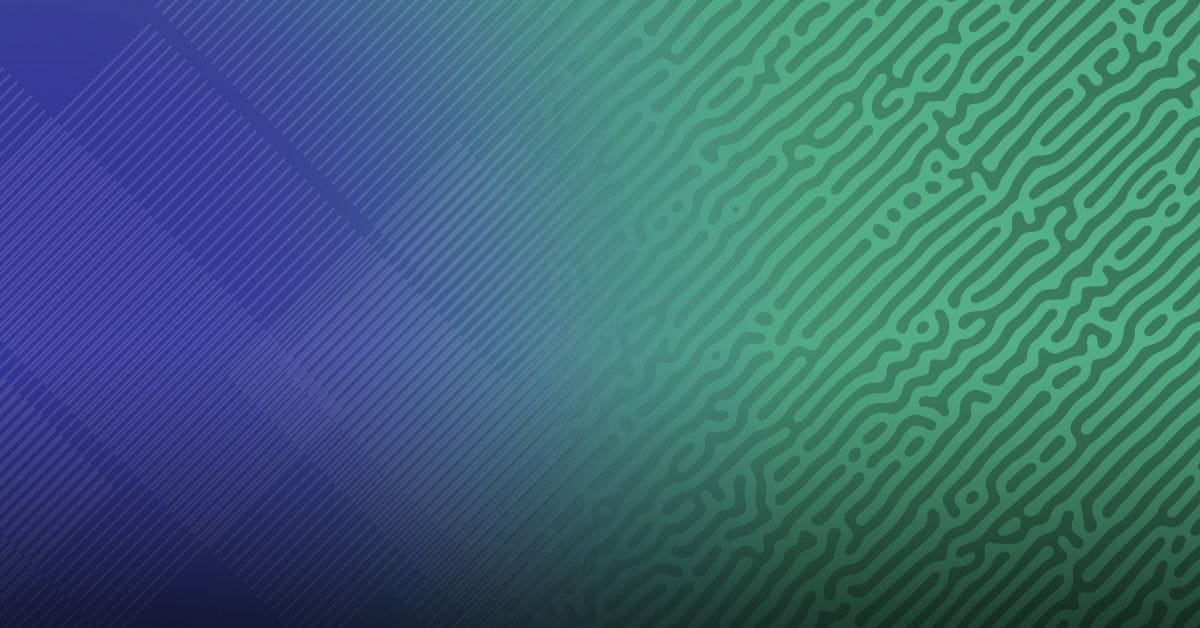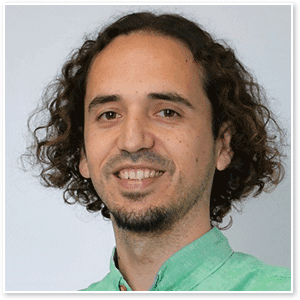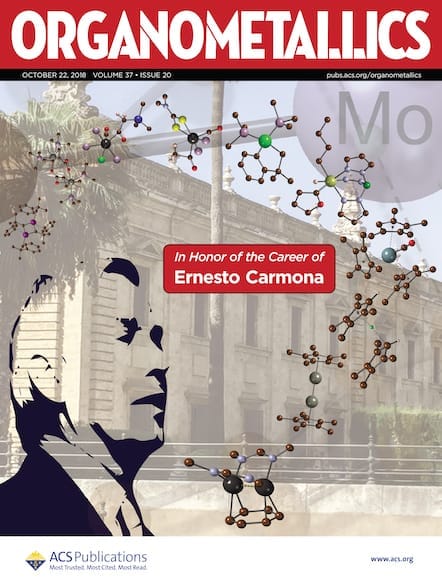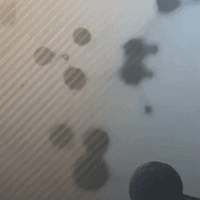This award recognizes authors of exceptional articles that emphasize the importance of organometallic chemistry and have had a profound impact on the field. Get to know this year's winner, Jesús Campos Manzano, and what inspires his work.

Organometallics, in partnership with the ACS Division of Organic Chemistry and the ACS Division of Inorganic Chemistry, is proud to announce Jesús Campos Manzano (Institute for Chemical Research at the University of Seville, Spain) as the winner of the 2023 Distinguished Author Award.
This award recognizes authors of exceptional articles published in Organometallics in the previous two calendar years that emphasize the importance of organometallic chemistry and have had a profound impact on the field. Dr. Campos was selected for this award in recognition of pioneering research in the field of metalla-Frustrated Lewis Pairs (FLPs), elegantly bridging late-transition-metal chemistry with main-group chemistry and catalysis for impactful developments in organic synthesis.
Dr. Campos will be honored during the ACS Spring Meeting in New Orleans, Louisiana, in March 2024. Learn more about his research below.

Dr. Campos was born in Seville, Spain, where he studied Chemistry at the University of Seville and moved to the University of Manchester to work under the guidance of Prof. John D. Sutherland. Moving back to Spain, he joined the group of Prof. Ernesto Carmona to work on fundamental organometallic chemistry, obtaining an International Ph.D. Distinction in 2012 after spending a visiting stay with Prof. Maurice Brookhart at the University of North Carolina, Chapel Hill, in 2010. In 2013, Dr. Campos returned to the United States of America as a postdoctoral researcher, joining the group of Prof. Robert H. Crabtree at Yale University to work on green catalysis and energy-related transformations. He was awarded with a Talentia Postdoc Fellowship in 2014 for a second postdoctoral period in the laboratories of Prof. Simon Aldridge at the University of Oxford to focus on bond activation and catalysis with main group systems.
In 2016, Dr. Campos moved back to the University of Seville as a Marie Curie Fellow, and one year later he obtained a permanent position as Research Scientist of the Spanish National Research Council (CSIC) and an ERC Starting Grant from the European Research Council to develop his independent career at the Institute of Chemical Research (IIQ) at Seville. Since then, he has focused on developing innovative organometallic systems to acquire a better understanding of complex processes at molecular level, with a strong focus on unusual cooperative processes.
Read the interview with Dr. Campos
What does being recognized by Organometallics mean to you?
It means the greatest possible honor, being valued by my own colleagues through our most iconic journal; it is such a wonderful gift. It also feels like a great responsibility, especially after having a look at the line-up of prior awardees, they are outstanding people who I admire and respect. And this honor, of course, is the result of tremendous efforts made by many students, postdocs, and collaborators over the years. Science is not a one-person adventure anymore, so I am truly grateful to all of them and equally grateful to all my mentors during these years. Also, I am thankful to the Spanish organometallic community, especially to those who built the foundation when there was nothing in Spain, over which we can now develop our chemistry way more easily.
How would you describe your research to someone outside your field of research?
I think it is the closest to art. As synthetic chemists we can draw molecules on a piece of paper and then try to make them real, for the first time in history, that’s just awesome. And being organometallic chemists mean that we can perform this artistic task with the whole periodic table, with all available tools in nature for a myriad of different goals. In our lab, we have been trying to contribute to the development of the concept of cooperativity, usually in multimetallic systems, with the aim of discovering new chemical transformations that are yet challenging for more conventional organometallic systems.
What do you think is the biggest challenge currently in your area of research?
I feel the biggest challenge is chemical sustainability at all levels (cleaner energy supplies, renewable feedstocks, recyclable manufacture, etc.). Organometallic chemistry is already playing an important role in this goal and will be crucial in the next future.
What is next in your research?
I have no idea, and that is why I love it. We have several general research lines currently going on in the lab, which include polarized bimetallic compounds, bimetallic FLPs, mixed transition metal/low valent main group complexes, open-shell precious metal systems, cavity-shaped ligands, and so on. But all these topics emerged in the lab from scratch, often after pursuing other goals. I love to embark on different things that I did not think about before, so we are continuously starting new concepts, most of them do not yield us anything beyond satiating our genuine curiosity, but others offer beautiful and unexpected science.
Have there been any highlights in your career to date that you are especially proud of?
What I am most proud of are the students and postdocs that joined our research group and then found their own paths in which they succeeded. Perhaps, it is where I can directly see my contribution to society through mentoring others. And although it is moving in the opposite direction, in terms of scientific output, maybe I am most proud of having developed what I believe was the first FLP made of two transition metals. First, because it was a way of combining my expertise from Ph.D. and postdoc studies, but also because I managed to get the paper out as a single-author publication, like in the old times, and that is how I started my independent career.
What would your advice be to someone just starting out in the field?
For the science, try to find a niche where you can freely develop your own ideas, low-hanging fruits are especially tasty at the beginning. But more importantly, be kind and generous to all your colleagues around, it will make your scientific life way happier and more rewarding.

